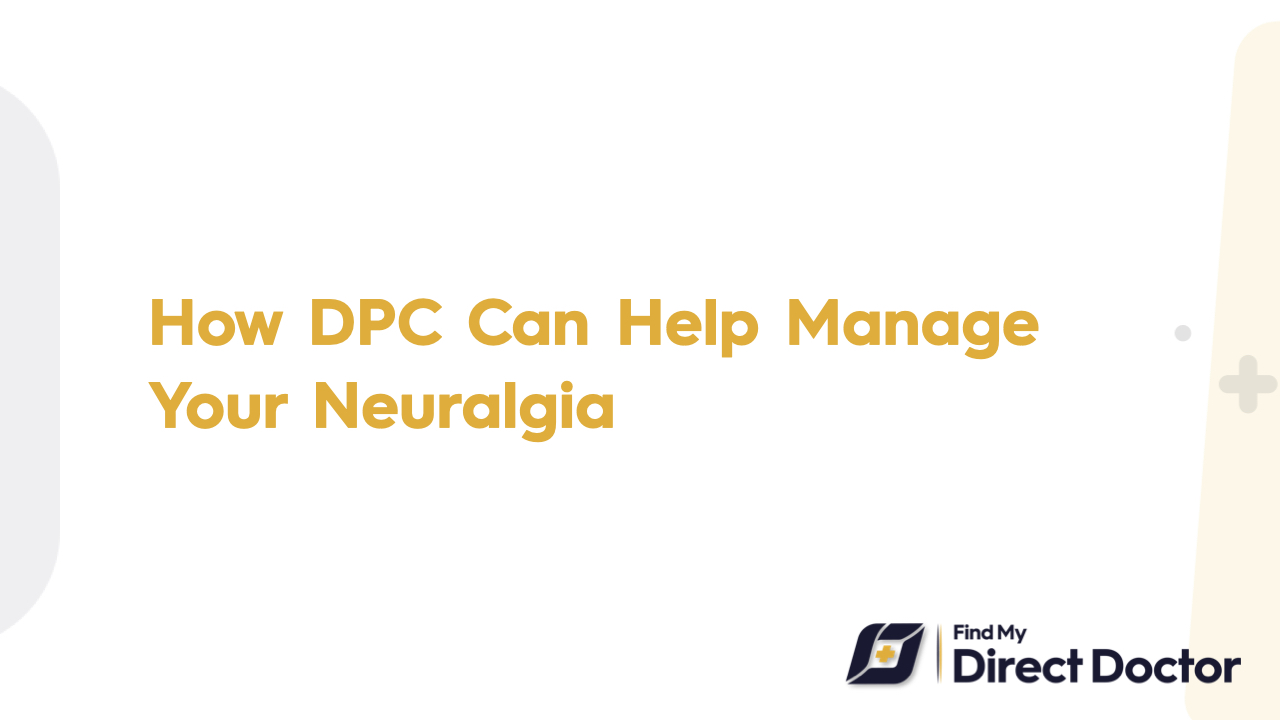



Sharp, shooting pain that follows a nerve's route is known as neuralgia, and it is frequently brought on by nerve irritation or injury. Although it can occur anywhere on the body, the face, neck, and back are the most frequently affected locations. Neuralgia is characterized by severe, stabbing pain that might happen suddenly or in reaction to movement or touch. In certain situations, the discomfort may be constant or may be brought on by particular activities, such talking, chewing, or even a slight breeze. In addition to causing a burning or tingling sensation in the affected area, the illness can occasionally result in muscle weakness.

Direct Primary attention (DPC) offers individualized, continuous attention and therapy to assist manage neuralgia. A comprehensive evaluation of the patient's symptoms, triggers, and progress is made possible by DPC's frequent and prolonged meetings with medical professionals. Regular examinations allow for treatment modifications, such as the prescription of painkillers, physical therapy, or lifestyle modifications. Additionally, DPC facilitates close communication between patients and healthcare professionals, guaranteeing prompt interventions and modifications to assist manage pain and lessen neuralgia flare-ups.
DPC provides a number of important advantages for neuralgia patients, chief among them being the provision of ongoing, individualized therapy. Patients with neuralgia might feel hurried during consultations in a traditional healthcare setting, but DPC guarantees enough time for conversations and the creation of customized treatment programs. Patients can contact DPC's healthcare practitioners with questions or concerns in between appointments, enabling more proactive care. This degree of individualized care encourages improved pain management, increases the efficacy of therapies, and helps avoid consequences that can result from untreated or inadequately managed neuralgia.
Neuralgia treatment at DPC is customized to meet the needs of each patient. To create a treatment plan that is most appropriate for the patient's condition, providers consider the patient's medical history, triggers, and unique symptoms. To address the pain and its underlying causes, this may involve a mix of medicine, physical therapy, lifestyle modifications, and other therapies. DPC makes it easier to modify therapies as necessary by enabling more frequent monitoring of the patient's development. A more successful and encouraging approach to neuralgia results from the close relationship that is developed between the patient and the practitioner, which guarantees that every facet of the patient's health is properly controlled.
Previous Post